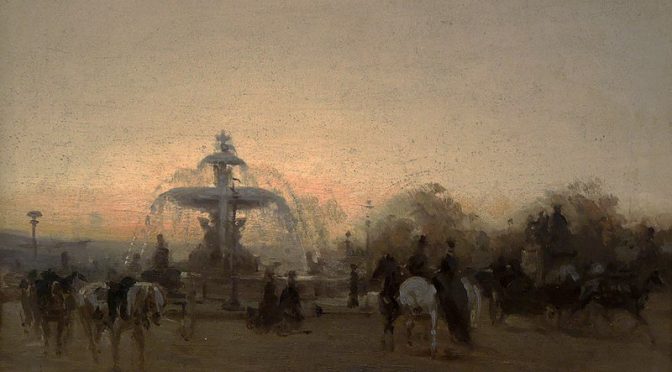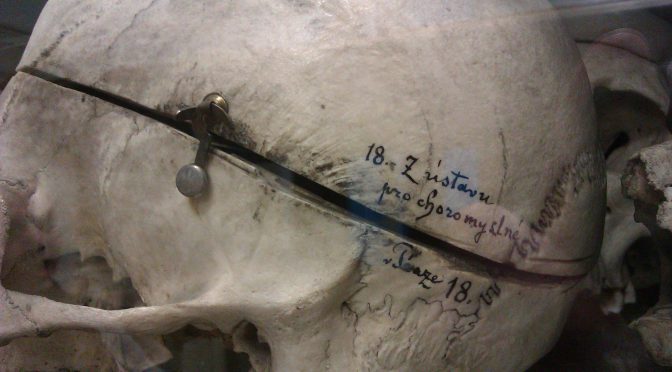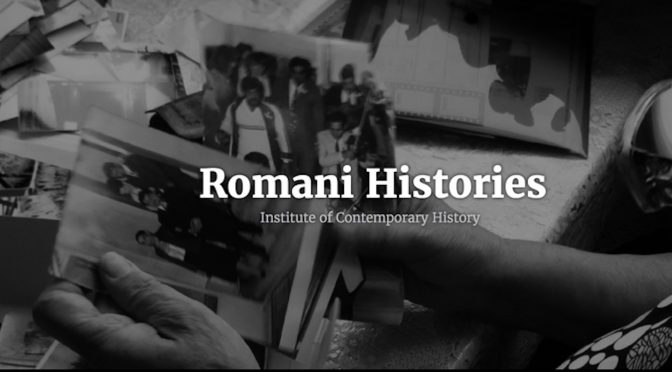Penser en paroles : la philosophie à la loupe de ses manuscrits et archives – méthodologies, histoire(s) et horizons
Organisatrice : Benedetta Zaccarello, CEFRES (CNRS-MEAE)
Dates et lieu : 7-9 juin 2018, Prague
Date-limite des candidatures : 21 janvier 2018
Langue : anglais
Partenaires : ITEM, IMEC, Archives Patočka (Académie tchèque des sciences), FHS UK
Merci d’adresser vos propositions (titre et argumentaire de 300 mots) et notices bio-bibliographiques à l’adresse suivante : benedetta.zaccarello@cefres.cz
La philosophie s’écrit, se pratique, se vit : elle est la traduction de l’expérience d’une subjectivité pensante dans un alphabet conceptuel et dans un tissu verbal. Le « je » de la philosophie est une chimère dont la tête effleure les hauteurs des concepts abstraits et des discours universels, tandis que le corps baigne dans cette expérience vécue qui seule peut mettre à l’épreuve la volonté de dire ce qui, depuis Kant au moins, ambitionne d’être valable pour chacun. À la charnière entre ces deux règnes, convoqués par l’effort de la spéculation, se situe la matière verbale dont le sens ne peut à son tour être déterminé qu’en relation aux contextes, aux pratiques d’écriture et de lecture qui la régissent, aux horizons de sens et aux même cibles polémiques qui ont marqué et marquent toute énonciation philosophique. De même, la spécificité de chaque écriture théorique est à la fois condition nécessaire pour que la discipline continue de vivre en se rénovant et transcendant ses propres catégories, et l’aspect le plus subjectif et personnel d’un travail qui vise traditionnellement le « neutre » de l’abstraction.
La « fabrique du texte » philosophique, comprise aussi bien comme son ancrage dans des dispositifs culturels et dans des facteurs sociétaires contingents, se heurte à une idée de la discipline qui pense son histoire comme liée à une suite de trouvailles abstraites, et d’intuitions novatrices échelonnant l’évolution de notre manière de penser. Le philosophe qui écrit est le premier à avoir tendance à effacer ce jeu complexe de négociations, entre existence et théorie, entre innovation conceptuelle et partage terminologique héritant d’une tradition séculaire, alors que manifestement les dynamiques de la production et de la réception philosophiques sont un objet complexe dont un des enjeux cruciaux se trouve dans la nature scripturale du phénomène.
Comme Derrida le rappelle en lisant Valéry, ce dernier aspect du métier du philosophe fait l’objet d’un oubli systématique et presque physiologique dans la manière dont nous nous représentons les ambitions de la discipline. Des frontières fortes semblent traverser des domaines qui sont facilement perçus comme divergents voire incompatibles entre eux : philosophie et littérature sont souvent considérées comme des sœurs ennemies, et leurs horizons respectifs ne prennent pas facilement en compte certains éléments qui se révèlent nécessaires pour comprendre — d’un point de vue dynamique et historico-culturel — la production de la prose théorique. Pareillement, et contrairement aux usages de l’âge romantique par exemple, il est rare que le métier intellectuel conjugue philologie et philosophie.
Pour toutes ces raisons, le manuscrit de philosophie est un objet étrange, auquel on a commencé à une époque assez récente d’attribuer une véritable valeur. Cependant, en Europe surtout, la création d’importantes archives réunissant de corpus philosophiques majeurs – tels Nietzsche, Benjamin ou Kierkegaard – a pérennisé la mémoire de l’écriture philosophique et permis à ces « arches » de traverser le temps en l’attente du moment où, notamment grâce au développement de nouveaux outils numériques, ces matériaux auraient pu trouver l’attention qu’ils méritaient. Le terrain de l’édition de manuscrits philosophiques apprend beaucoup sur l’importance des informations que ces supports sont susceptibles de donner, au-delà même des textes véhiculés par ces documents. Ce qui anime et structure le geste herméneutique fondé sur le travail sur manuscrits est une ontologie différente. À partir d’une telle perspective, l’évolution d’une écriture théorique devient une aventure vivante et spécifique, alors que l’histoire de la discipline peut être perçue comme un processus dynamique, pluridimensionnel et choral à la fois. Cependant, tous les documents d’archives, véritables traces d’autant de pratiques de la discipline disparates et peu connues, ne se prêtent pas à la « forme-livre » et restent par là cachés aux regards du public, alors qu’il est indéniable que l’accès aux archives permet souvent de comprendre l’allure, la méthode, la démarche et même les sources, les cibles critiques, les allusions que la publication a tendance à normaliser, à gommer, à estomper.
Souvent ce ne sont que les spécialistes travaillant à l’édition critique des œuvres d’un écrivain-penseur, ou encore les conservateurs en charge d’un fonds spécifique, qui sont amenés à développer une connaissance véritable d’un tel type de matériaux, car le travail sur manuscrits impose un temps lent de travail souvent incompatible avec les rythmes de la recherche et de la production intellectuelle. De ce fait, la créativité exprimée par les chercheurs dans la mise au point d’outils pensées ad hoc pour l’édition ou l’exégèse des manuscrits appartenant souvent à un seul un corpus philosophique n’a pas encore pu être mise en valeur à travers une approche comparative et visant à l’établissement de principes méthodologiques communs. Si la critique génétique a développée à partir des années 1970 un outillage important et une méthode philologique spécifique pour les manuscrits d’auteur, peu a été fait dans l’élaboration de lignes d’orientation dans le traitement des archives philosophiques.
Ce colloque vise ainsi à établir un dialogue entre spécialistes en provenance de différents pays et continents et ayant travaillé à des corpus différents de sorte à esquisser de premières lignes méthodologique et à établir un réseau collaboratif prêt à continuer dans ce travail de friche. La publication des actes du colloque fournira ainsi une première publication et la constitution d’un consortium de recherche en ce sens.
De plus, en portant à la lumière l’histoire de plusieurs archives philosophiques et leur ancrage dans l’histoire des hommes tout court, nous espérons valoriser ce genre de lieux en tant que sources de savoir et d’apprentissage sur le terrain, en même temps que sensibiliser à l’apport de ce genre de matériaux pour une différente approche à l’histoire et à l’exégèse de la théorie.
Les travaux seront articulés en quatre sections :
1 – Histoire(s) d’archives. Ce volet vise à recueillir des contributions concernant l’histoire de la création d’archives philosophiques ou de leur vies, en soulignant par là l’ancrage de ces institutions dans le paysage culturel et social de leur temps. En « contre-champs » ce même volet cherche à réunir des considérations sur l’idée d’histoire de la philosophie dégagée par le travail sur manuscrits.
2 – Conservation et édition. Ce deuxième volet du colloque a comme ambition de recueillir de témoignage de professionnels ayant travaillé à la conservation et/ou ) l’édition de manuscrits de philosophie pour mieux comprendre les difficultés relatives aux spécificités de chaque écriture théorique et la manière dont ces mêmes ont été affrontées. De même, nous traiterons en ce volet des questions liées à la numérisation des fonds théoriques et à l’intelligibilité de ses produits. Nous espérons recueillir un certain nombre de cas exemplaires ouvrant également à la session suivante du colloque.
3 – Editions et exégèses : approches et méthodologies. Ce volet du colloque vise à ouvrir des perspectives méthodologiques communes à partir de l’observation de plusieurs corpus de philosophe et sera articulé en une suite de contributions et en une table ronde de partage. Nous essayerons par là d’esquisser des lignes d’orientation pour le travail sur manuscrit philosophique, qu’il s’agisse d’édition ou d’exégèse.
4 – Les archives de la théorie. Cette dernière section du colloque aspire à recueillir des contributions concernant des corpus théoriques mais non proprement philosophiques tels la théorie littéraire, l’histoire de l’art, des sciences, la sémiotique… Par là nous espérons dégager des spécificités de ce genre de documents dans leur relation aux matériaux spécifiquement philosophiques.






